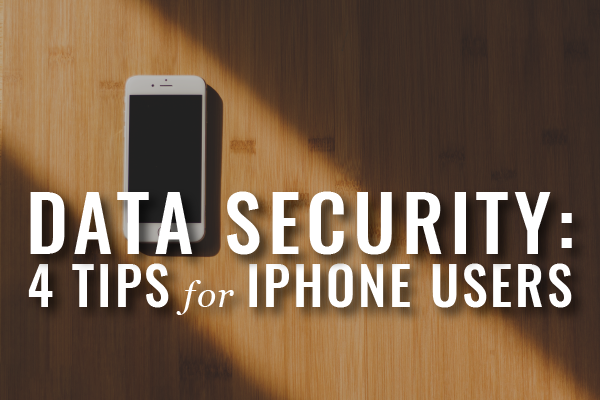Thanks to mobile devices, attorneys can remain connected to their offices while on the go. While this can be hugely advantageous to practitioners, having access to confidential client data can also pose major security concerns. Small handheld smartphones, in particular, are easily lost and often a target for thieves as well as hackers.
A recent survey by the cloud-based practice management company, Clio (also, a Massachusetts Bar Association member benefit), found that the majority of law offices surveyed use iPhones as their mobile device of choice in practice. Fortunately, Apple is serious about security. Here are few steps to leverage the iPhone’s security features:
- Upgrade to iOS … When this post was written, we touted iOS 7 (then newest operating system) for adding a number of security features, including Activation Lock, iCloud Keychain, “Do Not Track” in Safari, “Trust This Computer” alerts and more. Now we are on iOS 10, and Apple recently acknowledged a security flaw that makes it easier to access protected iTunes backups; they’re working on a fix (see tip 4 below), and in the meantime you should stick to iCloud backups for best security.
- Use a Passcode Lock. With iOS 7, the system defaults to requiring a Passcode Lock to access your phone. You can modify passcode settings in Settings > General > Passcode Lock. To boost security, require your passcode “immediately” upon locking your screen disable the four-digit “simple passcode” and enter a longer alphanumeric passcode.
- Enable Find My iPhone. Turn this service on in Settings > iCloud. If your phone is lost or stolen, this service can display a custom message on your lock screen (i.e., contact information), track your phone via GPS, remotely wipe your data and require your Apple ID should someone attempt to erase the contents on your phone (to restore and resell the device).
- Stay current with software updates. Check for updates in Settings > General > Software Update and follow the prompts. Just this week, Apple released a new software update to fix a serious vulnerability.
These are all simple security precautions that any attorney can implement. So, get to it! For more information regarding the security and use of Apple products in your law practice, visit LOMAP’s newest resource: LoMac for Law Office Mac and iOS Users.
*Note: the results of the Clio survey are illustrative but nonscientific.
This post originally appeared in the Massachusetts Bar Association’s eJournal.






